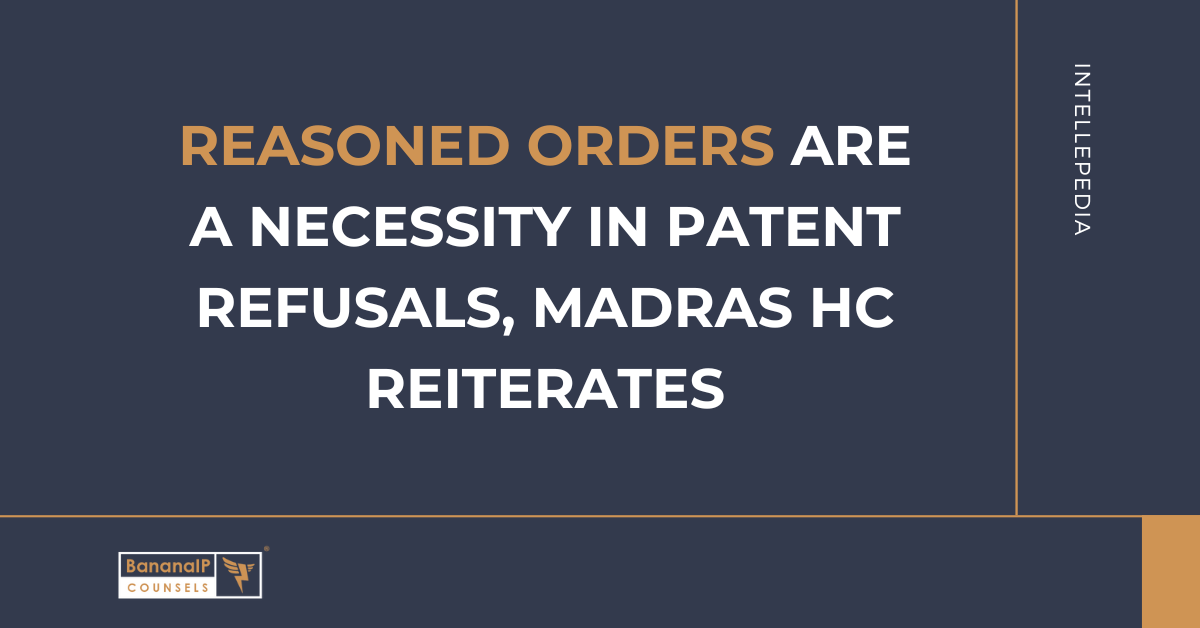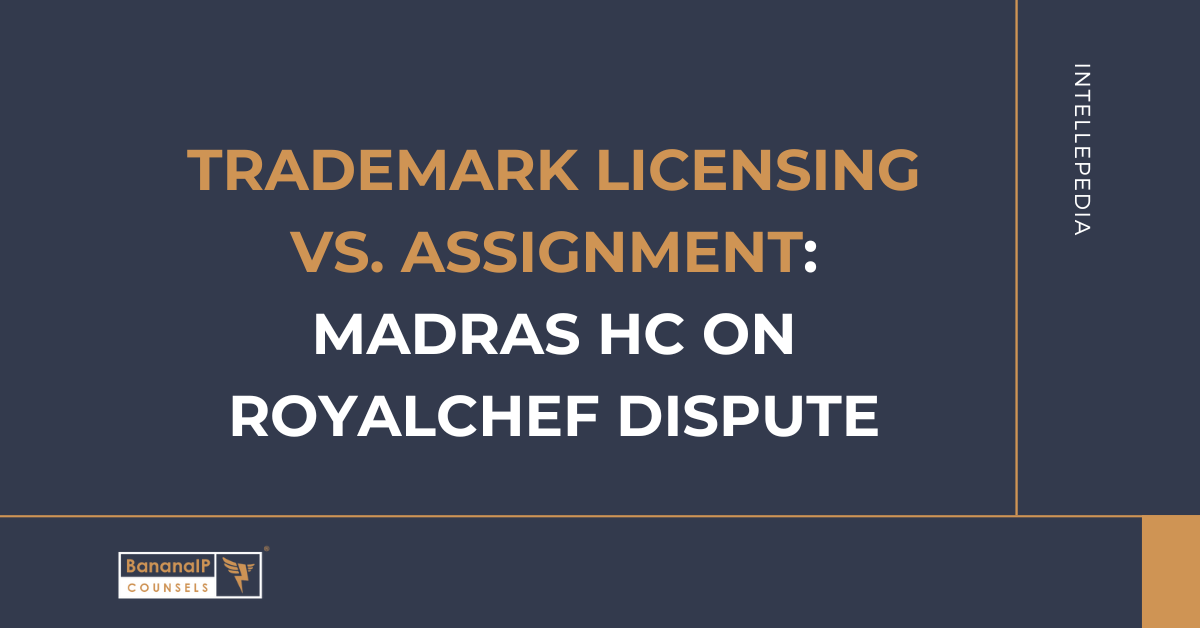The Madras High Court dismissed an appeal by Raghuvar (India) Limited against the registration of the ‘JAI HANUMAN’ trademark, underscoring the importance of territorial use evidence in opposition cases. Despite claiming prior use, the appellant failed to show usage in South India, leading to the Court affirming the Registry’s decision.
Read more about Trademark Opposition Fails Without Territorial Use EvidenceTag: Madras High Court
Patent Rejection for Vehicle Monitoring System reversed by Court
The Madras High Court allowed the appeal filed by TVS Motor Company against the rejection of its patent application pertaining to a Vehicle Monitoring System. The Court observed that the Controller had not adequately examined the validity of the cited prior art and had failed to provide a reasoned analysis with respect to the inventive step. Consequently, the matter was remanded to a different Controller for fresh consideration.
Read more about Patent Rejection for Vehicle Monitoring System reversed by CourtCourt Affirms Controller’s Refusal: Invention deemed obvious to a person skilled in the art
The Madras High Court dismissed Navya Network Inc.’s appeal against the Patent Controller’s refusal, ruling that the claimed invention was obvious to a person skilled in the art. The judgment clarifies the approach to inventive step and non-patentability under Indian patent law, reinforcing standards for algorithm and method claims.
Read more about Court Affirms Controller’s Refusal: Invention deemed obvious to a person skilled in the artMadras High Court Dismisses Patent Infringement Suit, Allows Coexistence of Technologies
The Madras High Court ruled on a patent infringement dispute involving Arumugam Rajendra Babu and Ashok Leyland over battery-swapping technology. The Court found no infringement and dismissed both the suit and counterclaims, allowing both parties to coexist. The ruling addressed prior art, novelty, and the scope of patent protection in the electric vehicle sector.
Read more about Madras High Court Dismisses Patent Infringement Suit, Allows Coexistence of TechnologiesReasoned orders are a necessity in patent refusals, Madras HC reiterates
 Featured image for article: Reasoned orders are a necessity in patent refusals, Madras HC reiterates
Featured image for article: Reasoned orders are a necessity in patent refusals, Madras HC reiterates
The Madras High Court overturned a patent refusal in Signal Pharmaceuticals vs. Deputy Controller of Patents, citing a lack of reasoning in the rejection order. The Court observed that the Patent Office failed to address the applicant’s arguments, disregarded amended claims, and provided no justification for the refusal under Section 2(1)(ja) and Section 3(d) of the Patents Act. The case was remanded for reconsideration, reinforcing the necessity of well-reasoned patent orders.
Read more about Reasoned orders are a necessity in patent refusals, Madras HC reiteratesMadras High Court Affirms Rejection of AI-Integrated Persona Patent
The Madras High Court dismissed an appeal challenging the rejection of a patent application for AI-integrated persona augmentation. The Court ruled that the invention lacked sufficient technical detail, inventive step, and patent-eligible subject matter under the Patents Act. It upheld the Controller’s decision, emphasizing the absence of tangible technical effects and clear disclosure requirements.
Read more about Madras High Court Affirms Rejection of AI-Integrated Persona PatentTrademark Licensing vs. Assignment: Madras HC on ROYALCHEF Dispute
The Madras High Court ruled that the licensing of the ROYALCHEF trademark does not restrict the licensor’s rights. In a dispute between Quality Chef Agro Foods and ADF Trading, the Court analyzed trademark ownership, assignment, and licensing agreements. It concluded that the plaintiffs, as licensees, had no exclusive right to the mark and could not prevent the licensor from exporting goods under the same brand.
Read more about Trademark Licensing vs. Assignment: Madras HC on ROYALCHEF DisputeDhanush v. Nayanthara: Netflix denied an exit pass in copyright violation case
The Madras High Court ruled in favor of Wunderbar Films in its copyright dispute with Netflix over the unauthorized use of behind-the-scenes footage. Netflix’s applications challenging jurisdiction and seeking rejection of the plaint were dismissed. The Court held that territorial jurisdiction was valid, pre-suit mediation was not mandatory due to urgency, and combining statutory and common law remedies was permissible.
Read more about Dhanush v. Nayanthara: Netflix denied an exit pass in copyright violation caseEvaluation of Technical Advancement and Compliance with CRI Guidelines under Indian Patent Law
The Madras High Court allowed Idemia Identity & Security France’s appeal, setting aside a refusal order under Section 3(k) for a cryptography patent. The Court ruled the order as a non-speaking one and in violation of natural justice. It directed fresh consideration of the matter, emphasizing technical contributions and adherence to CRI and European guidelines.
Read more about Evaluation of Technical Advancement and Compliance with CRI Guidelines under Indian Patent LawMadras HC Overrules Procedural Rejection in France Telecom’s Patent Case
The Madras High Court allowed France Telecom’s writ petition, setting aside the procedural rejection of its patent application examination request. The judgment clarifies the treatment of agent errors under Indian patent law and upholds procedural fairness.
Read more about Madras HC Overrules Procedural Rejection in France Telecom’s Patent Case






